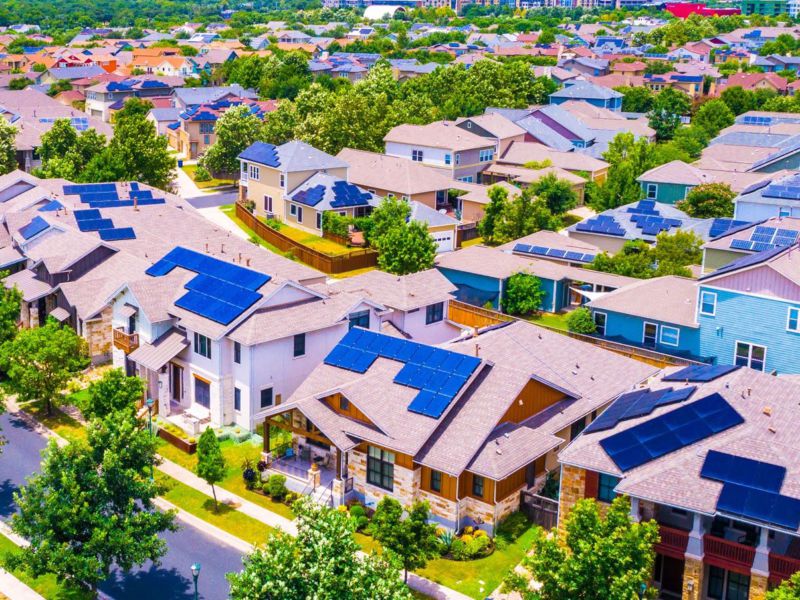
Introduction
Solar energy is a renewable and clean source of power that has gained significant attention in recent years. It offers numerous benefits, both for the environment and for homeowners and businesses. Nevada Solar Group specializes in solar panel installation and provides a comprehensive range of services related to solar energy. In this article, we will explore the definition of solar energy and discuss the concepts and technologies associated with solar panels.
Definition of Solar Energy
Solar energy refers to the energy generated by harnessing sunlight. It is a renewable source of power that can be converted into electricity or used for heating and cooling purposes. Solar energy is abundant and freely available, making it an attractive alternative to traditional fossil fuels.
The most common method of capturing solar energy is through the use of solar panels. Solar panels are devices that convert sunlight into electricity through the photoelectric effect. They are made up of individual solar cells, typically composed of silicon. These cells absorb photons from the sun’s rays and release electrons, creating an electric current.
Once the electricity is generated by the solar panels, it is in the form of direct current (DC), which needs to be converted into alternating current (AC) for use in homes and businesses. This conversion is done by an inverter, which is an essential component of any solar panel system. AC electricity is the type of power that is compatible with the electrical grid and can be used to power appliances and devices.
Solar Panel Installation
Nevada Solar Group specializes in solar panel installation and provides professional services to ensure optimal performance and efficiency. The installation process involves several steps, including:
- Site assessment: Our team assesses the site to determine the best location for solar panel installation. Factors such as available space, sunlight conditions, and shading are taken into account.
- Design and engineering: We design a customized solar panel system based on the site assessment. The system is engineered to meet the specific electricity needs of the customer.
- Permitting and paperwork: We handle all the necessary permits and paperwork required for solar panel installation.
- Installation: Our team installs the solar panels on the roof or the ground, depending on the site. We ensure that the panels are properly positioned and secured for maximum efficiency.
- Connection to the grid: Once the solar panels are installed, they are connected to the electrical grid. This allows the excess electricity generated to be sent back to the grid and accumulated as credits.
Nevada Solar Group takes care of the entire installation process, from start to finish. Our experienced technicians ensure that the solar panel system is installed correctly and in compliance with all safety standards and regulations.
Solar Panel Concepts
There are several important concepts associated with solar panels that are worth mentioning. These concepts help optimize the performance and efficiency of solar panel systems:
Shading Analysis
Shading analysis is a process of assessing the amount of shade that could potentially affect the performance of solar panels. Shading from trees, buildings, or other obstructions can significantly reduce the amount of sunlight reaching the panels, thereby reducing their energy production. By conducting a shading analysis, Nevada Solar Group can determine the best placement for the solar panels to avoid shading issues and maximize energy generation.
Sun Path Analysis
Sun path analysis involves determining the path of the sun throughout the day and year. This analysis helps optimize the angle and orientation of the solar panels to capture the maximum amount of sunlight. By aligning the panels correctly, Nevada Solar Group ensures that they are exposed to the sun’s rays for the longest period possible, resulting in increased energy production.
Net Metering
Net metering is a policy that allows solar panel owners to receive credits for the excess electricity they generate. When a solar panel system produces more electricity than is needed, the excess power is sent back to the electrical grid. This surplus energy is accumulated as credits, which can be used to offset future electricity costs when the solar system is not generating enough power, such as during nighttime or cloudy days.
Net metering is an incentive that encourages the adoption of solar energy systems. It not only helps solar panel owners save money on their electricity bills but also allows them to contribute to the overall renewable energy generation in their community.
Conclusion
Nevada Solar Group specializes in solar panel installation and offers a wide range of services related to solar energy. Solar panels are devices that convert sunlight into electricity through the photoelectric effect. Proper placement and orientation of solar panels, as determined through shading analysis and sun path analysis, are crucial for maximizing their efficiency. Net metering allows solar panel owners to receive credits for excess electricity generated. Nevada Solar Group aims to educate customers about these concepts to help them make informed decisions about solar panel installation.